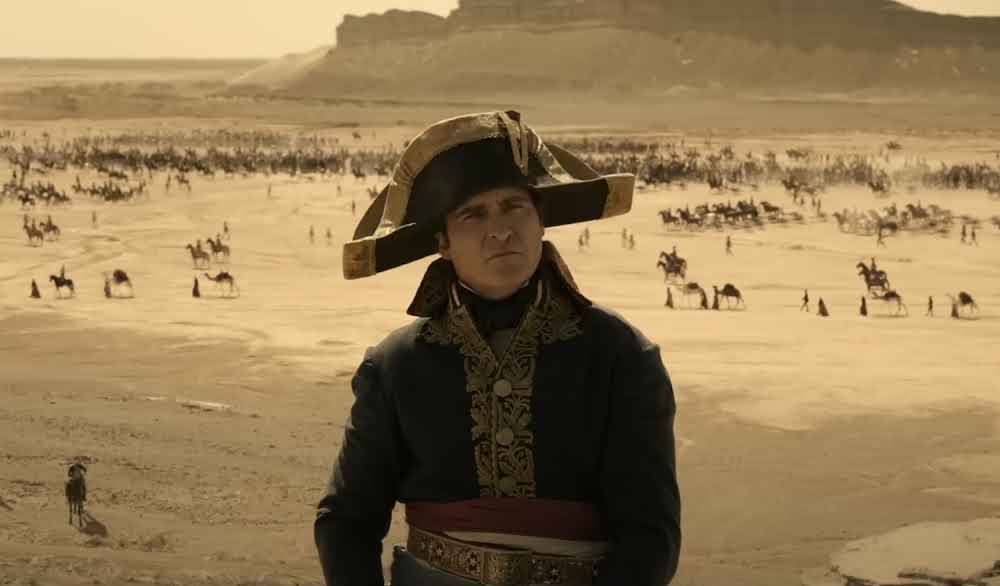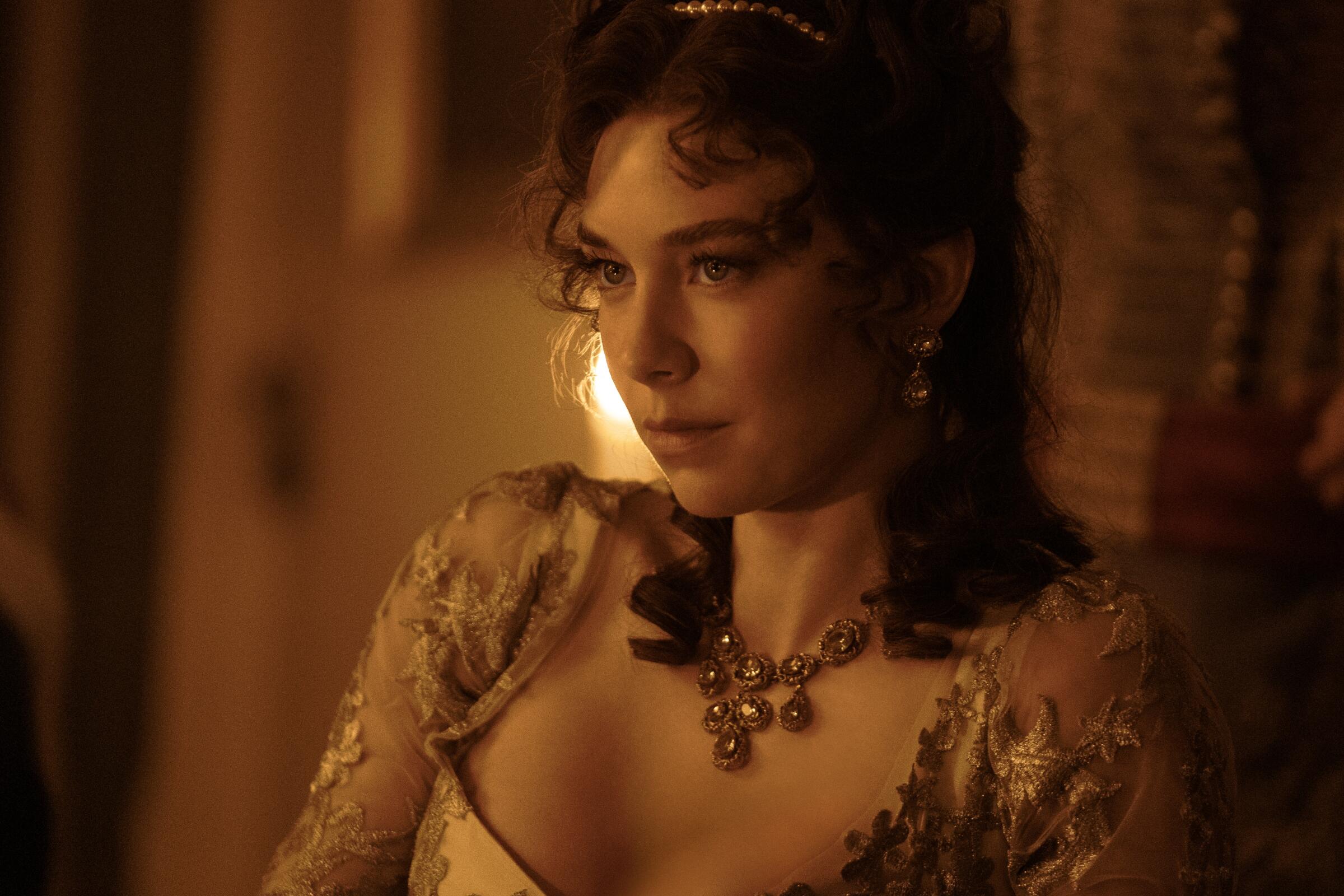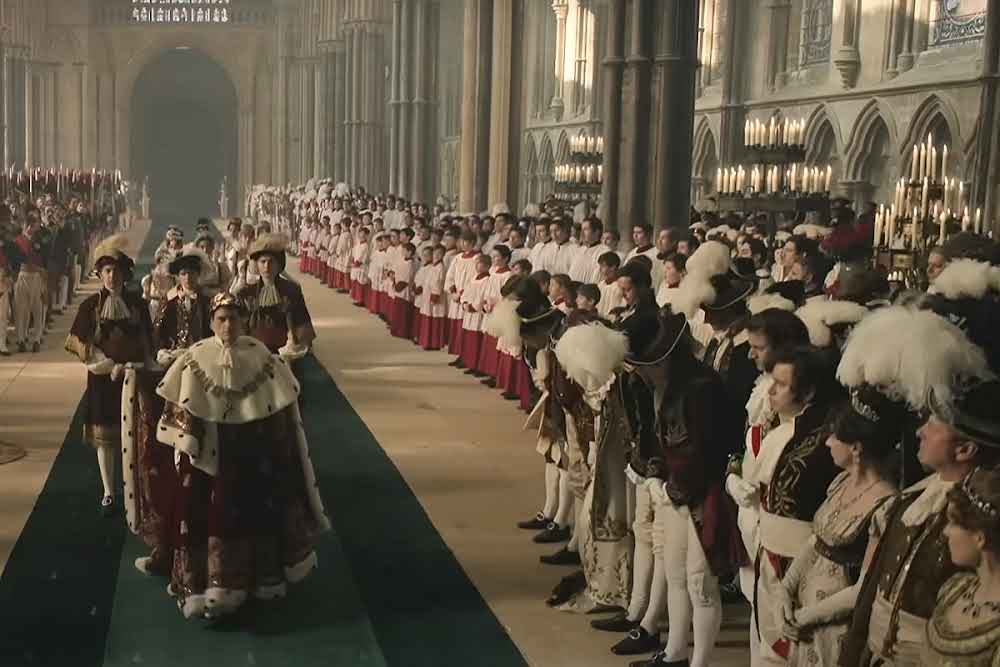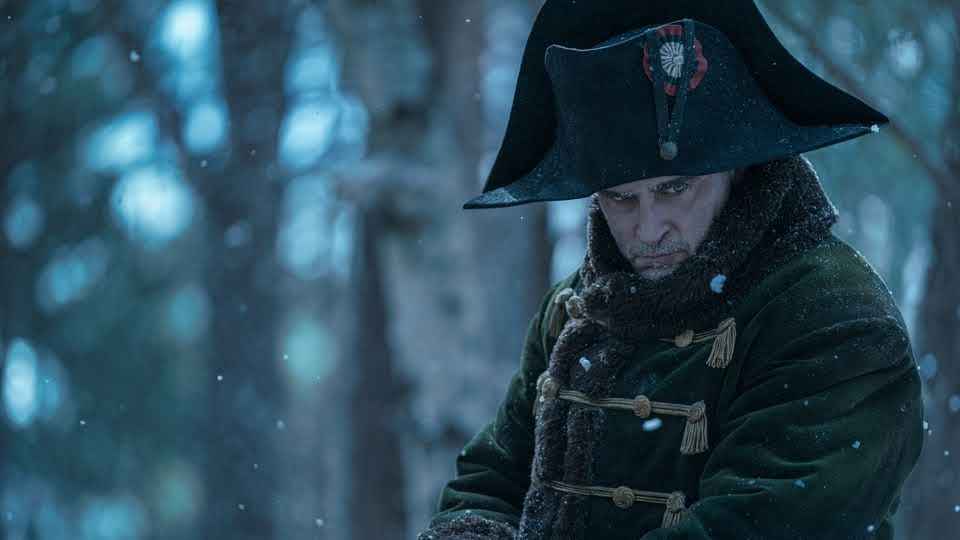Napoleon Bonaparte is one of the last major world historical figures not to get his own movie in the past couple decades. Turning 86 next week, Ridley Scott is one of the last major directors who specialises in epics underpinned by huge battle scenes and the grand sweep of history. The two were a match made in heaven.
The biopic Napoleon is not, alas, the ideal offspring of the match. Which perhaps is appropriate given that one of the major plot points is the difficulty Napoleon has conceiving an heir, a shortcoming ultimately pinned on his unfaithful wife, Josephine (spoiler alert). This is not to say the film doesn’t succeed in parts, and in fact, succeed wildly some of the time. It’s just that merely staging a man’s life is not enough to communicate to us why it was important, so Scott’s unparalleled technical competence lacks an understanding of the man – even, maybe, the desire to understand him.
Biopics can fall into the trap of trying to present a “grand unifying theory” of the subject – you know, the notion that Charles Foster Kane would have led a happy life if only he hadn’t lost his sled. (Again, spoiler alert.) Napoleon steers clear of that sort of thing, even leaving the trait most of us know about the military leader turned emperor – that he was short – almost completely unmined. It’s a curious decision, and it isn’t made because the film doesn’t want to make fun of Napoleon. In fact, you’re likely to chuckle more in Napoleon than almost any Ridley Scott film, an indication of both the jokes written at Napoleon’s expense and Joaquin Phoenix’s delivery of his own myopic self-assessments. That he was short isn’t discussed a single time, but that he was battling insecurities he didn’t think he had is abundantly clear.
Still, whatever personal demons Napoleon faced are presented with about an equal level of importance as his military victories and eventual blunders and miscalculations. Chronological is the most likely order to present any sequence of events, but in Napoleon, the lack of creativity in that choice is more striking than usual. “Here are a bunch of things that happened” is the more uncharitable way to put this film’s fealty to marching out a series of verifiable truths about both this man and the country he led.
The narrative starts with the beheading of Marie Antoinette in 1789, an unusually graphic sequence that sets the tone for what’s to come. Scott chooses a confronting close-up of the decapitation, where one moment the woman is sitting there looking miserable, her hair askew in front of her face, and the next moment the head is swept away, leaving only the blood stump behind it. The really memorable parts of Napoleon are those that take you by the lapels in this way. In one of Napoleon’s earliest battles as a captain, for example, his horse takes a fist-sized cannonball in the lower neck/upper legs, and it practically tears the creature apart. Scott continues to challenge us with the true horrors of a violent world, to his credit.
Napoleon is watching in the crowd as Marie gets hers, almost as though calculating the opportunities this new France provides him. We see him rise in the ranks and demonstrate both courage and strategic insight on the battlefield, though perhaps not as much of either as we might have expected. Particularly absent from Scott’s narrative are real demonstrations of how Napoleon thought differently from other military minds to overcome superior armies through unexpected tactics. The first battle we see jumps off from his observation “If you control the fort that dominates the harbour, you control the whole city.” To the untrained military strategists in the audience, that seems more like sound logic than outside-the-box thinking.
As he gains power, he develops a mutual interest with Josephine (Vanessa Kirby), the widow of an officer who was executed during Robespierre’s “reign of terror.” We see early on that she has a merely opportunistic interest in the rising star, as she’s barely present during their lovemaking and flirts with another man on their wedding night. (Not that Napoleon is particularly good at sex; one of the jokes is that we see him railing away with her as if he were sacking a fort.) Over the course of the narrative and many ups and downs in their relationship, we are meant to believe that something like a true devotion or at least a co-dependency materialised, and this at least creates a thread to intersperse in between the battle scenes.
Those battle scenes, unfortunately, are relatively few, and sometimes far between – like, 45 minutes or more. This decision was likely dictated by either budgetary considerations or the desire not to render them monotonous. The few we get do not disappoint, particularly the battle of Austerlitz against Austrian and Russian armies, where part of Napoleon’s ambush was to blow cannonballs through the ice adjacent to his opponent’s camp. This creates a mesmerizing sequence in which both the artillery and the bloodied corpses of horses and men sink to the depths as the battle becomes a slaughter.
The need to focus on the battles boasting the most cinematic potential leaves others feeling cursory. For example, the mammoth loss of French troops during Napoleon’s ill-fated Russian campaign is covered largely through on-screen text. Scott does stage Waterloo, but with a curious failure to communicate what made it such a rout, aside from a compressed troop formation by the British that Napoleon couldn’t penetrate. It doesn’t seem like his lowest moment except everyone knows the term “Waterloo,” used metaphorically these days to represent the failed last stand of any endeavour.
Scott is right to give time to the palace intrigue with a performer of Phoenix’s calibre on his hands. Phoenix is the sort of actor who makes any scene interesting to watch, because he makes choices you don’t expect. Those go right a fair bit of the time in Napoleon but astray in others.
For a time, Phoenix plays Napoleon with a sort of clamped-mouth stoicism that suggests he’s in a contest to see who can go the longest without laughing, and has deadened his affect to try to become the victor. Other times he does push the performance toward the operatic end of his spectrum. Never is there a consistent character presented, as Phoenix fails to find the essence of this man, or short of that, fails to assign him an essence we can get behind. The performance is always watchable and Phoenix does understand that this man is a buffoon on some level. The actor can make us laugh just with subtle facial adjustments. Because he’s chosen only his regular speaking voice – a better decision, to be sure, than an Inspector Clouseau-style French accent – sometimes it’s evident we are just watching a 21st century actor.
Narrative crutches though they may be, a grand unifying theory and a tragic flaw are at least reliable ways for us to arrive at the end of a story with more of a takeaway than “Here are a bunch of things that happened.” Since that is the shrugging conclusion with which Napoleon leaves us, even its technical merits are not enough to earn it a full-throated recommendation.
Napoleon is now playing in cinemas.




